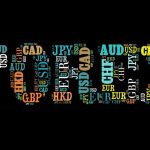Engaging in foreign exchange trading presents a range of advantages, yet it’s crucial to recognize the associated risks. If you’re contemplating a career in this field, it’s essential to have a clear understanding of both the benefits and drawbacks of forex trading. To assist you in making an informed decision, the professionals at Alphachain have compiled this informative guide, highlighting the key advantages and disadvantages of forex trading, along with some valuable tips to enhance your chances of success. Stay with us to delve deeper into this subject!
Advantages of Trading the Forex Market
Indeed, Forex trading offers various advantages that make it an appealing choice for many traders:
- Profitable Gains: The Forex market is renowned for its profitability, and a substantial percentage of traders consistently earn profits. High liquidity and low transaction costs contribute to the attractiveness of Forex trading.
- Dynamic Market: The Forex market is constantly evolving with new strategies and participants, creating opportunities for traders to capitalize on currency price movements.
- High Leverage Ratios: Forex brokers offer high leverage ratios, enabling traders to control substantial capital with a relatively small investment. This empowers traders to profit from even minor currency price fluctuations.
- Low Trading Costs: Forex markets have minimal transaction costs because there is no central exchange, eliminating the need for commission charges. The primary cost is typically the broker’s spreads, which are usually low, especially when working with an educational, Funded Forex Programme.
- Superior Liquidity: High Forex position limits make it easy for traders to enter and exit the market swiftly. This superior liquidity enables traders to seize opportunities without waiting for buyers or sellers to match.
- Flexibility: Forex trading offers flexibility since traders can participate from anywhere in the world, at any time of the day or night, with just an internet connection. This allows traders to respond to opportunities as they arise without being confined to traditional office hours.
- International Reach: Trading Forex provides exposure to global events, allowing traders to make informed investment decisions based on the performance of different economies. This international reach also opens doors to emerging markets, potentially offering high returns.
However, it’s important to remember that while Forex trading has numerous advantages, it also carries inherent risks. It’s a dynamic and complex market that requires a solid understanding, discipline, and a risk management strategy to be successful. Traders should be aware of the potential for significant losses, especially when using high leverage, and carefully consider their risk tolerance before entering the market.
Disadvantages of Trading the Foreign Exchange Market
Forex trading, despite its advantages, does come with certain disadvantages, which are important to consider:
- High Volatility: The forex market is known for its high volatility, characterized by significant price swings. This can pose challenges for traders who are not prepared for such rapid and unpredictable price movements, potentially leading to unexpected losses.
- Risk Factor: Forex trading is inherently risky. Compared to other financial markets, it’s one of the most volatile due to the 24/5 trading hours, which allow ample opportunities for currency value fluctuations. Leverage can magnify both profits and losses, making it particularly risky. Traders should only engage in forex trading with capital they can afford to lose.
- FOMO (Fear of Missing Out): The forex market’s constant availability can lead to a sense of missing out on potential opportunities. Traders may feel pressured to trade frequently, potentially making impulsive and emotional decisions. Overtrading can lead to financial losses.
To mitigate these disadvantages, it’s essential for traders to:
- Have a Solid Trading Plan: Develop a well-defined trading plan that outlines your strategies, risk tolerance, and goals. Stick to your plan to avoid impulsive decisions.
- Understand and Manage Risk: Be aware of the inherent risks and use risk management tools like stop-loss orders to limit potential losses.
- Educate Yourself: Gain a comprehensive understanding of the forex market through education and practice. Consider joining programs or courses that offer support and guidance.
- Trade Responsibly: Trade with capital you can afford to lose, and avoid trading under emotional pressure or impulsivity.
Balancing the advantages and disadvantages of forex trading, while maintaining a disciplined and informed approach, is key to achieving success in this dynamic and potentially rewarding market.




